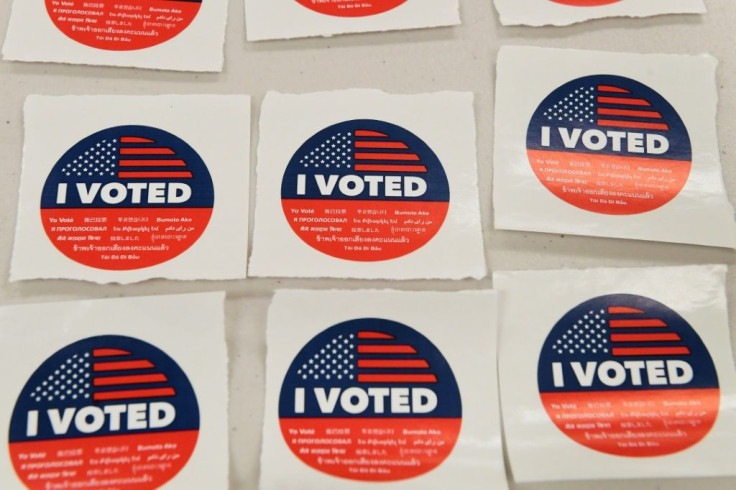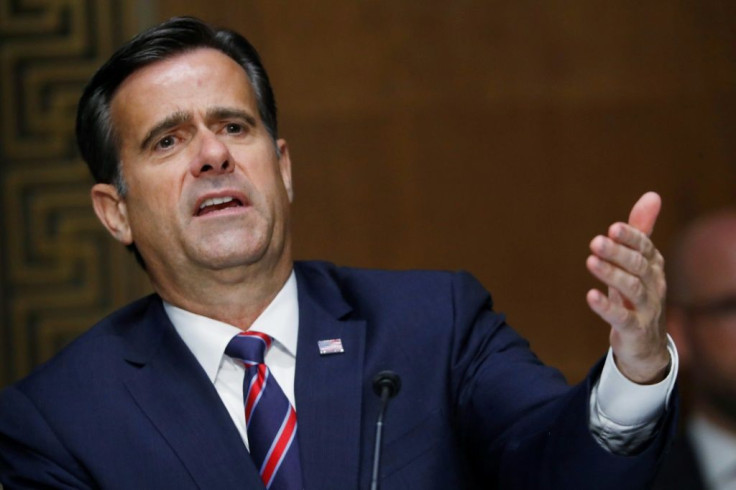Iran, Russia Deny US Election Interference Claims
Iran and Russia on Thursday strongly denied US allegations of having taken actions to influence public opinion ahead of the November 3 US presidential election.
Washington had accused Iran of sending "spoofed" emails to Americans "designed to intimidate voters, incite social unrest, and damage" President Donald Trump less than two weeks before the crunch vote.
According to the US Director of National Intelligence John Ratcliffe, Iran had also distributed a video that implies that people could send in fraudulent ballots, including from outside the United States.
US authorities "have put forward a baseless claim on the verge of the country's election so that they would advance their undemocratic and predefined scenario through shifting the blame," Iran's foreign ministry spokesman Saeed Khatibzadeh said in a statement, after summoning the Swiss ambassador.
He called the accusations "fabricated and clumsy" and repeated Iran's stance that it favours neither Trump nor his Democratic challenger Joe Biden.
The Swiss embassy in Tehran has handled US interests in Iran, since ties were cut in the aftermath of the 1979 Islamic revolution.
Tensions between the the two governments have risen sharply since 2018, when Trump unilaterally pulled the US out of a landmark nuclear agreement with Iran and reimposed crippling sanctions in policy of "maximum pressure" against the Islamic republic.

Also pointing the finger at Russia, Ratcliffe said both Tehran and Moscow seek to "communicate false information to registered voters that they hope will cause confusion, sow chaos, and undermine confidence in American democracy".
The Kremlin dismissed the accusations as "absolutely groundless."
"Accusations are raining down every day. All of them are absolutely groundless, they are not based on anything," Kremlin spokesman Dmitry Peskov told reporters.
Khatibzadeh too urged Washington to "cease the pointless blame projection, baseless accusations and fabrication of suspicious scenarios and try to act like a normal country."
Iran's ambassador to the United Nations, Alireza Miryousefi, called the allegations "another scenario to undermine voter confidence" in the US and said the world had seen Washington's attempts to "question the outcome of its own elections at the highest level".
The US announcement came after registered Democratic voters reported receiving personally addressed emails in the name of the Proud Boys militia, and from an internet domain linked to the Proud Boys.

A number of voters in Florida and other key battleground states said they had gotten the messages.
"You will vote for Trump on election day or we will come after you," the emails said.
"Change your party affiliation to Republican to let us know you received our message and will comply. We will know which candidate you voted for," they said.
"I would take this seriously if I were you," the message ends, adding the voter's address. "Good luck.
Ratcliffe, with FBI Director Christopher Wray beside him, did not explain how the Russians and Iranians had obtained the voter information, or how the Russians might be using it.
But US voter registration information is widely available, with some states allowing anyone to access it, while others restrict it to political parties.
US intelligence agencies have repeatedly warned that Russia, Iran and China to a lesser extent had taken part in social media disinformation efforts aimed at influencing US voters.
In 2016, US officials say, Russian President Vladimir Putin oversaw hacking and social media operations aimed at helping Trump to election victory over Democrat Hillary Clinton.
Iran's alleged use of the Proud Boys name in emails came after Trump refused to distance himself, and appeared to encourage, the group, which has appeared at political rallies heavily armed, and menacing others.
In early October, 13 men in Michigan, some of whom identified themselves with the group, were arrested for plotting to kidnap the state's Democratic governor and "instigate a civil war".
Wray stressed that US election systems remained safe.
"We are not going to tolerate foreign interference in our elections or any criminal activity that threatens the sanctity of your vote or undermines public confidence in the outcome of the election," he said.
"We've been working for years as a community to build resilience in our infrastructure and today that infrastructure remains resilient -- you should be confident that your vote counts."
© Copyright AFP 2024. All rights reserved.




















